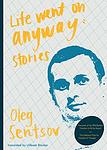The Greatest German, Unknown "Nonfiction, Fiction" Books Since 1990
Click to learn how this list is calculated.
This list represents a comprehensive and trusted collection of the greatest books. Developed through a specialized algorithm, it brings together 300 'best of' book lists to form a definitive guide to the world's most acclaimed books. For those interested in how these books are chosen, additional details can be found on the rankings page.
Genres
Countries
Date Range
Reading Statistics
Click the button below to see how many of these books you've read!
Download
If you're interested in downloading this list as a CSV file for use in a spreadsheet application, you can easily do so by clicking the button below. Please note that to ensure a manageable file size and faster download, the CSV will include details for only the first 500 books.
Download-
1. The Rings of Saturn by W. G. Sebald
"The Rings of Saturn" is a richly detailed travelogue that follows the narrator's journey along the coast of Suffolk, England. The narrative weaves together history, literature, and personal anecdotes, exploring topics as diverse as the decline of the herring industry, the horrors of colonialism in the Congo, and the life of philosopher Sir Thomas Browne. The book is characterized by its melancholic tone, its digressive style, and its meditative reflections on memory, time, and decay.
-
2. The Emigrants by Winfried Georg Sebald
"The Emigrants" is a novel that explores the experiences and memories of four different emigrants, each with a unique and complex history. The narrative primarily focuses on the psychological impact of displacement and the haunting nature of the past. The author delves deep into their lives, revealing their struggles with identity, loss, and the persistent influence of their roots. The narrative is interwoven with historical events, photographs, and other documents, creating a rich tapestry that blurs the line between fact and fiction.
-
3. Kiswahili, Past, Present And Future Horizons by Rocha Chimera
"Kiswahili, Past, Present And Future Horizons" explores the rich history, current state, and potential future of the Kiswahili language. The book delves into the origins and development of Kiswahili, highlighting its significance as a lingua franca in East Africa. It examines the language's role in literature, education, and communication, while also addressing the challenges and opportunities it faces in a rapidly changing global landscape. Through insightful analysis and compelling examples, the author presents a comprehensive overview of Kiswahili's past achievements and its promising prospects for continued growth and influence.
-
4. The Invention Of Nature: Alexander Von Humboldt’s New World by Andrea Wulf
"The Invention of Nature" is a biographical account of Alexander von Humboldt, a 19th-century explorer, scientist, and naturalist who revolutionized the way we understand the natural world. Andrea Wulf chronicles Humboldt's travels across South America, his encounters with indigenous peoples, and his groundbreaking scientific discoveries that challenged prevailing notions of the natural world. Humboldt's ideas about interconnectedness and the unity of nature were ahead of their time and continue to influence environmentalism and conservation today. Wulf's book is a masterful exploration of one of history's most fascinating and influential figures.
-
5. An Immense World by Ed Yong
"An Immense World" is a collection of science essays written by Ed Yong, a science journalist. The book explores a wide range of scientific topics, from the behavior of animals to the complexities of the human microbiome. Yong's writing is accessible and engaging, making complex scientific concepts easy to understand for readers of all backgrounds. The essays are thought-provoking and provide a glimpse into the fascinating world of science. Overall, "An Immense World" is a must-read for anyone interested in science and the natural world.
-
6. Global Health by Ann Lindstrand
This book provides a comprehensive overview of global health, addressing the key issues, challenges, and strategies involved in improving health outcomes worldwide. It delves into the determinants of health, the burden of diseases, and the complex interplay between health, economic development, and social factors. The text emphasizes the importance of a multidisciplinary approach, incorporating perspectives from epidemiology, public policy, and international relations, to tackle the global health disparities and pave the way towards achieving equity in health for all populations. Through case studies and analysis of current trends, the book offers insights into the roles of various stakeholders, including governments, NGOs, and the private sector, in advancing public health goals on a global scale.
-
7. Life Went On Anyway by Oleg Sentsov
"Life Went On Anyway" is a powerful memoir that chronicles the life of Oleg Sentsov, a Ukrainian filmmaker who was wrongfully imprisoned by the Russian government. Through his vivid and poignant storytelling, Sentsov shares the harrowing details of his arrest, imprisonment, and the relentless fight for justice. Despite the unimaginable hardships he endures, Sentsov's resilient spirit shines through as he reflects on the power of art, the importance of freedom, and the indomitable human will to survive.
-
8. When We Cease To Understand The World by Adrian Nathan West, Benjamin Labatut
"When We Cease To Understand The World" is a collection of two novellas that explore the limits of human knowledge and the consequences of scientific discovery. In "The Immaculate Void," a mathematician becomes obsessed with solving a seemingly unsolvable equation and risks his sanity in the process. In "The Unfinished," a group of scientists race to unlock the secrets of nuclear fission, only to realize the devastating power they have unleashed. Through these stories, the authors question the role of science in society and the dangers of pursuing knowledge without considering its ethical implications.
Reading Statistics
Click the button below to see how many of these books you've read!
Download
If you're interested in downloading this list as a CSV file for use in a spreadsheet application, you can easily do so by clicking the button below. Please note that to ensure a manageable file size and faster download, the CSV will include details for only the first 500 books.
Download





